2020 Belt and Road International Conference on TVET was held in Shenzhen Polytechnic.
On November 26-27, 2020 Belt and Road International Conference on TVET with the theme of "Construction of Digital Vocational Education, Consultation and Cooperation for Shared Benefits" was held in Shenzhen Polytechnic. Nearly 300 experts and scholars from government departments, institutions, and industry enterprises from 26 countries and regions gathered online and offline to discuss the opportunities and challenges of vocational education in the "Belt and Road Initiative" countries in the digital economy era and released the Shenzhen Initiative. This is another high-profile international event in the field of vocational education, following the success of the first Belt and Road International Conference on TVET in 2018.
Vocational Education Elites at Home and Abroad Gather in Shenzhen Polytechnic
Discussion on Digital Construction of Vocational Education
The conference is rich in content and novel in form. It is divided into five sections: Opening Ceremony, Keynote Speech, Cutting-edge Dialogue, University-enterprise Dialogue and Closing Ceremony. Nearly 30 government officials, experts and scholars at home and abroad have been invited to conduct in-depth dialogues on topics such as digital vocational education to help global supply chain, vocational education to promote the application of new generation information technology, vocational education in 5G application subdivision, exploration and practice of digital transformation of vocational education, and jointly discuss the construction strategy of digital vocational education under the background of the "Belt and Road Initiative" to promote the innovation of global vocational education.
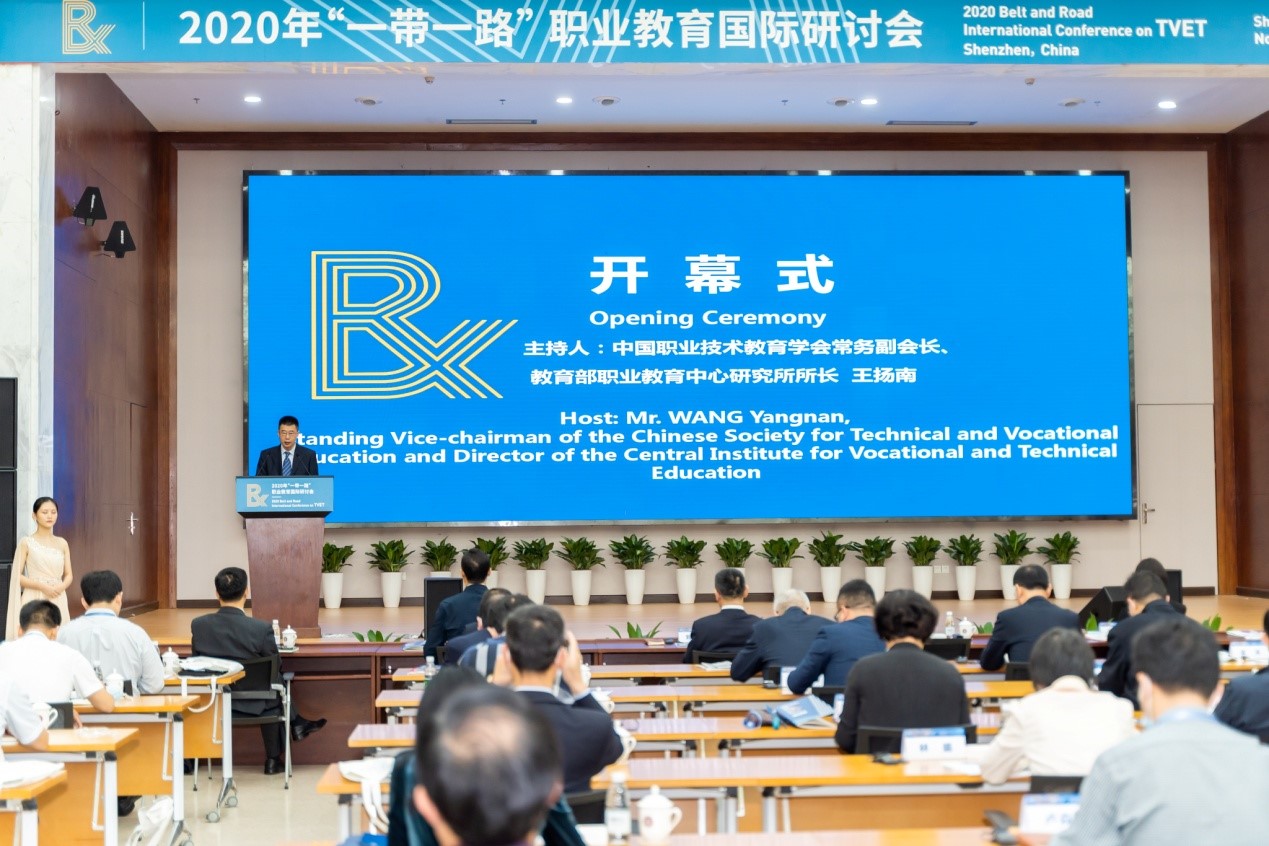
This conference was sponsored by the Chinese Society for Technical and Vocational Education, the Central Institute for Vocational and Technical Education, organized by Shenzhen Polytechnic. Meanwhile, the Department of Education of Guangdong Province, the Secretariat of the Chinese National Commission for UNESCO, China Center for International People-to-People Exchange, Ministry of Education, Organizing Committee of China-ASEAN Education Cooperation Week provided strong support for the conference. Lu Xin, president of Chinese Society for Technical and Vocational Education and former Vice Minister of the Ministry of Education of the People's Republic of China, Soo-Hyang Choi, Director of UNESCO-UNEVOC International Center, Zhang Guangping, Deputy Director of China Center for Contemporary World Studies, International Department of the Central Government, Qin Changwei, Secretary-general of the Secretariat of the Chinese National Commission for UNESCO, Zou Lianke, Secretary General of Organizing Committee of China-ASEAN Education Cooperation Week, Member of Board and Director of Department of Education of Guizhou Province, Xie Li, Deputy Director of Department of Vocational Education and Adult Education, Ministry of Education, Wu Yanling, Director of Division of Vocational Education and Lifelong Education of Department of Education of Guangdong Province, and other Chinese and foreign leaders delivered speeches.
Consolidate Consensus on Digital Vocational Education
Deepen Digital Vocational Education Practice
Accelerate extensive consultation, joint contribution and shared benefits
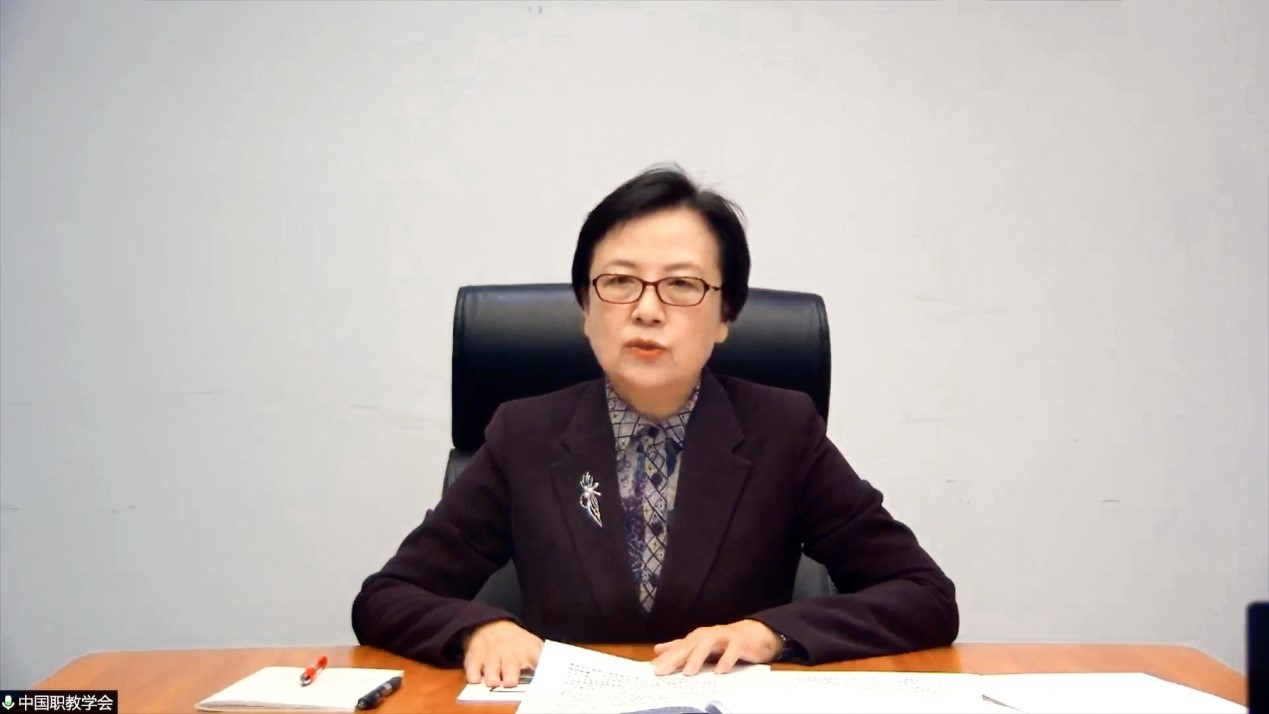
Lu Xin said in his speech that since the beginning of this year, the global epidemic has spread and the world economy has been in a downturn. With the further development of the new round of scientific and technological revolution and industrial transformation, the international power balance has been profoundly adjusted. Peace and development remain the theme of the times and the concept of a community of human destiny is deeply rooted in the hearts of the people. In this context, it is particularly important to unswervingly deepen reform and expand opening up. It is a strategic arrangement made by China in the face of the new international situation and environmental situation to coordinate the domestic and international overall situation, respond scientifically and seek change on its own initiative.
Lu Xin used detailed data to sort out the notable achievements in education since the “Belt and Road Initiative” cooperation initiative was put forward in 2013. He said that China's vocational education should continue to focus on the joint construction of the "Belt and Road Initiative", meet the industrial needs of the country where it is located, and cultivate more high-quality technical and technical talents through the combination of academic education and vocational training.
After briefly explaining China's specific measures for vocational education to connect with technological progress and deepen the integration of production and education, Lu Xin said that the society will make full use of the "Belt and Road Initiative" vocational education international seminar platform and actively play the role of think tank type society in the new era. We are willing to work with countries and regions along the “Belt and Road” to build a consensus on digital vocational education, deepen the practice of digital vocational education, accelerate the co-construction and sharing of digital vocational education, jointly respond to the current global challenges of vocational education development, and promote the building of a community with a shared future for mankind. Lu Xin pointed out that the conference will unite 26 countries and regions to issue the Shenzhen Initiative, which will surely provide consensus and direction for the full realization of the vocational education’s digital transformation, digital upgrading, digital development and digital construction, to make a greater contribution to promoting the high-quality development of vocational education in the countries and regions in the “Belt and Road Initiative” region.
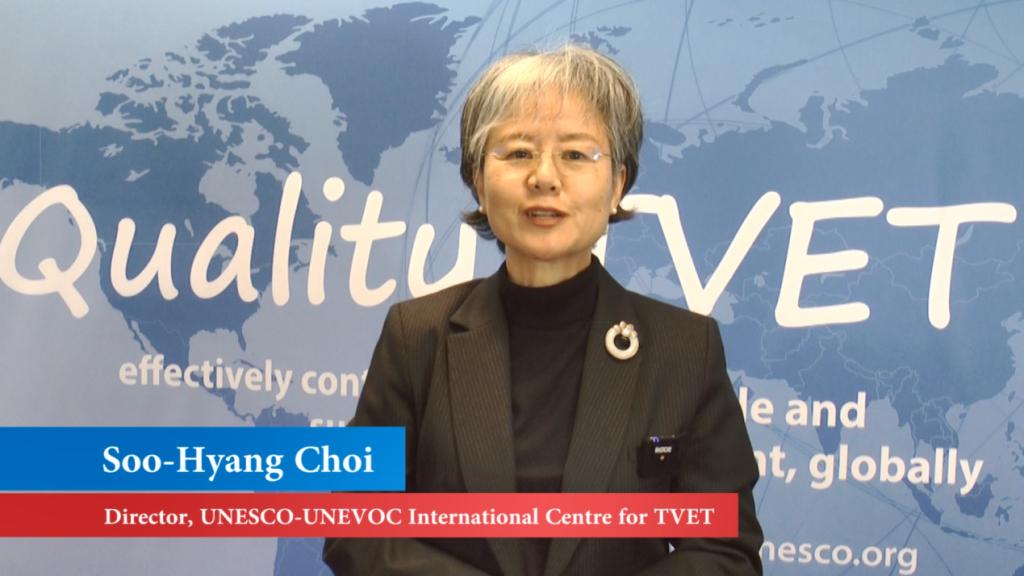
Soo-Hyang Choi stated that it is high time for this year's conference to set the theme of "Digital Vocational Education". Digitalization is a great change and challenge in the field of vocational education in recent years. The wide application of network teaching during the epidemic period also shows that digital technology can create more diverse and flexible learning experience for learners. She also pointed out that digital vocational education is not only the introduction and application of new technologies, but also should focus on promoting innovation and changing the way of thinking. She thanked the conference organizers for setting up a platform for international exchange and cooperation for the “Belt and Road Initiative” vocational education, and hoped that the participants would take the opportunity to learn from each other’s unique insights and advanced experiences in the construction of digital vocational education.
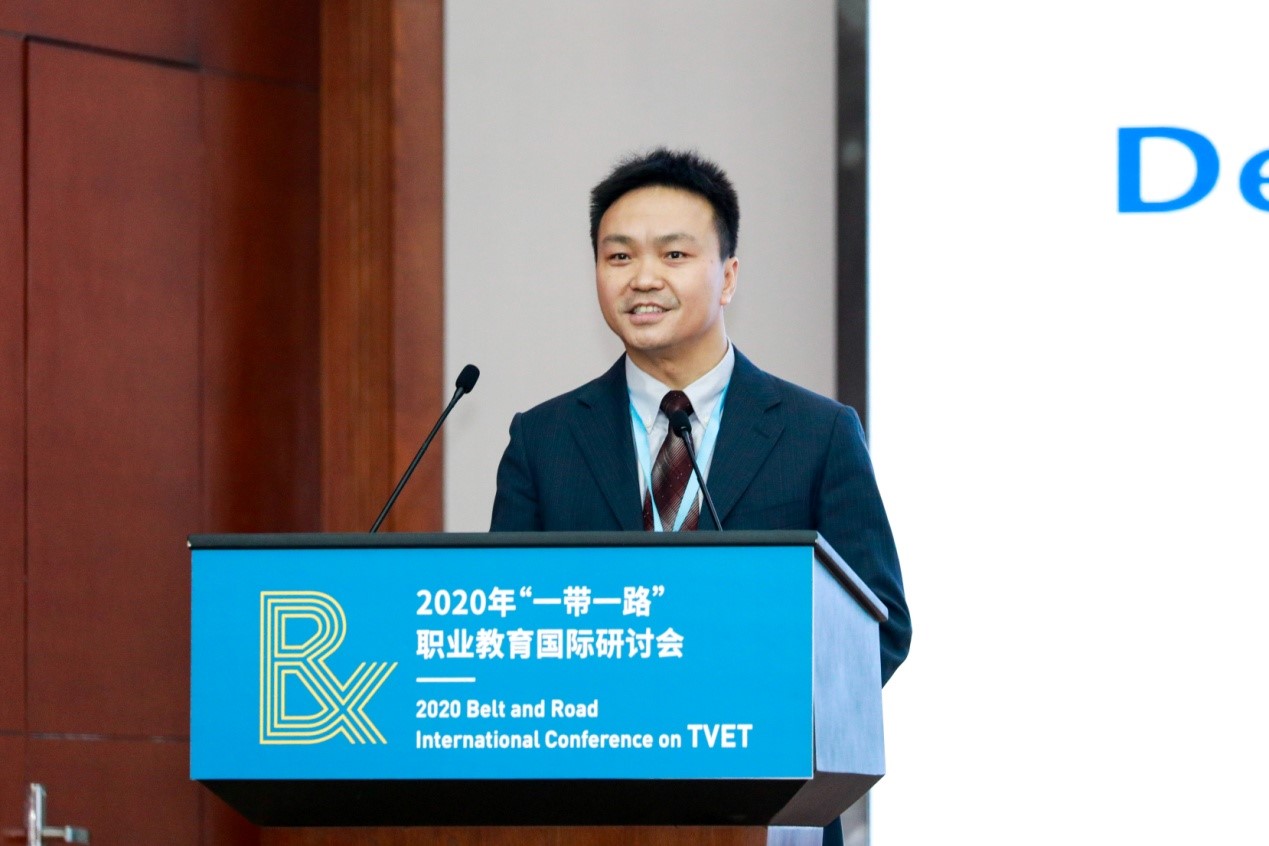
Zhang Guangping shared three thoughts on the digital transformation of vocational education. The first is to increase the intensity, breadth and depth of international exchanges and cooperation in vocational education. The second is to leverage the comparative advantages of universities, vocational education colleges, and digital technology companies to promote the integrated development of production, teaching and research. The third is to promote the formation of correct vocational education concepts in all societies. He said that the cooperation alliance between China center for Contemporary World Studies and the “Belt and Road Initiative” think tank will further implement the important instructions of General Secretary Xi Jinping and the decisions and plans of the Party Central Committee. It will continue to strengthen exchanges and cooperation with partners including the China Vocational Education Association, and contribute to the high-quality development of the "Belt and Road Initiative".

Qin Changwei said in his online speech that the structure and trend of vocational education and economic and social development are unified, so the digitalization of vocational education is imperative. It is hoped that the participants will uphold the concept of consultation, contribution and shared benefits of the BRI, introduce the idea of digital vocational education, put it into practice, and contribute relevant solutions in order to work with peers of vocational education in countries along the Belt and Road to build a community with a shared future for mankind and create a beautiful future featured by peace and development.
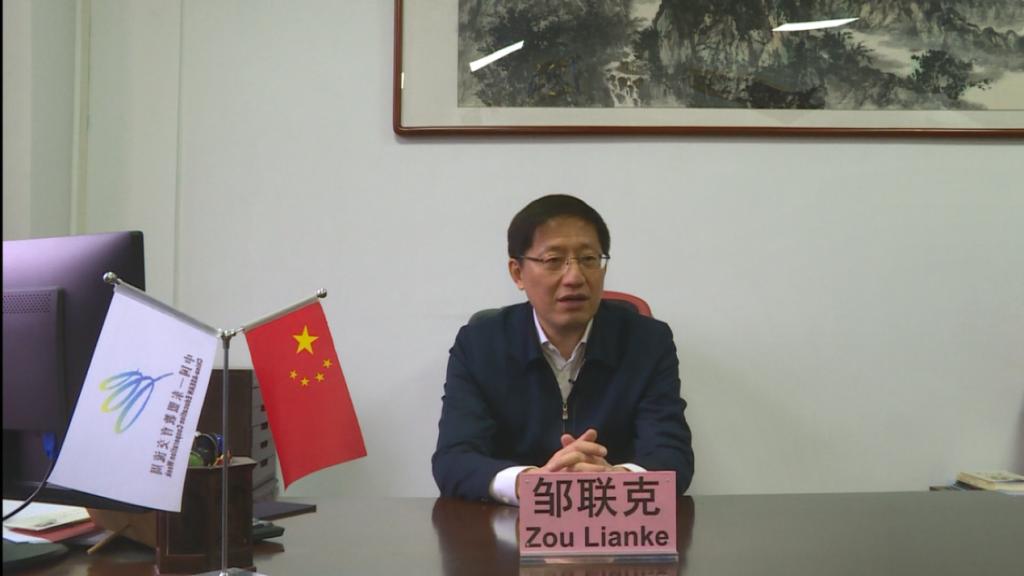
Zou Lianke introduced the situation of China-ASEAN Education Exchange Week and the experience of Guizhou's vocational education development. He looks forward to learning the insights of guests attending this conference, with which the key speciality clusters of vocational education in Guizhou will play a major role in boosting the economy, improving people’s livelihood, and training highly-competent personnel, thus combining the progress of vocational education with the goal of building a colorful Guizhou Guizhou where the people live in prosperity in a beautiful ecosystem and writing a new chapter in the high-quality development of Guizhou’s vocational education.
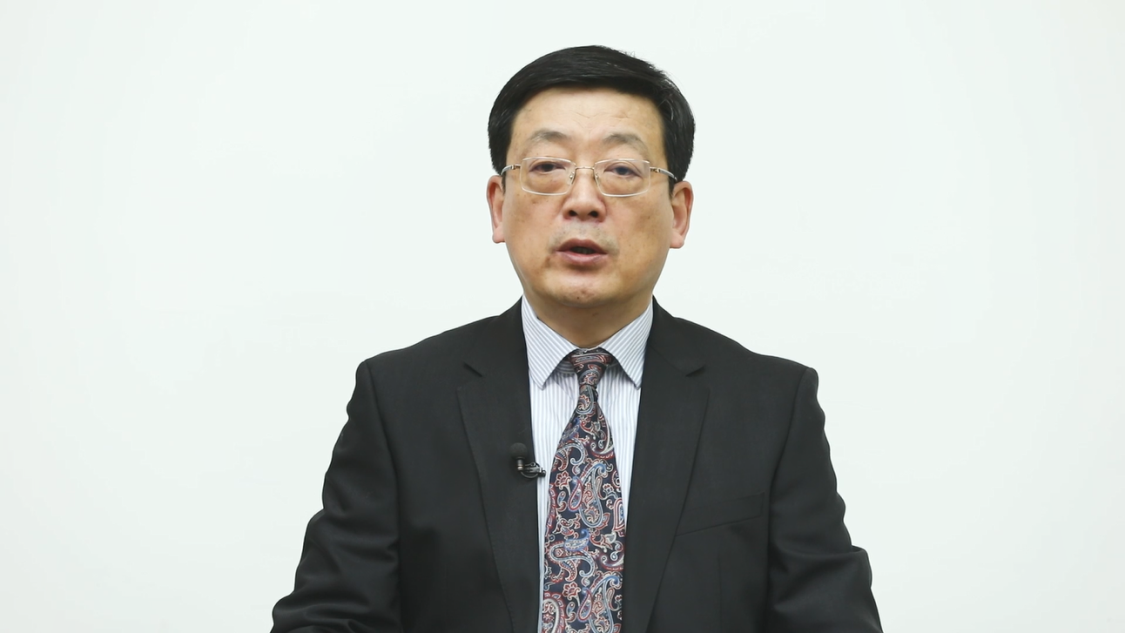
Xie Li pointed out that China’s vocational education has come to a critical period featured by major development and major reforms, and has entered a new development stage of quality improvement, talent training, value appreciation and empowerment. We look forward to participants coming up with ideas focusing on the blocking and pain points of vocational education, having more proposals focusing on the new situation of vocational education blueprint, and contributing more solutions for mutual sharing and win-win cooperation.

In her speech, Wu Yanling introduced the outstanding achievements of Guangdong vocational education. She said that Guangdong is in an important period of economic transformation, industrial upgrading, and the construction of the Guangdong-Hong Kong-Macao Greater Bay Area. Facing the new requirements of the economy and society, the vocational education in Guangdong clearly proposes to vigorously develop high-quality industrial forces with quality improvement as the core. This conference provided powerful guidance for the exploration and realization of high-quality development in Guangdong's vocational education. It will facilitate the continuously deepening reform of Guangdong's vocational education and contribute more Guangdong cases to the reform and development of vocational education in the new era.
Keynote Speech with the Topic of Common Development
Exploring the Future Direction of Digital Vocational Education
In the keynote report section, Liu Jiantong, Standing Vice-chairman and Secretary General of the Chinese Society for Technical and Vocational Education, YANG Phil Seung, Chairman of CKT group; 2017 Candidate for the People's Party Presidential Primaries for the Republic of Korea Presidential Election; International President of Jilin Vocational & Institute of Technology; Adjunct Professor of Tsinghua University; CEO of Mega AI Lab; Ph.D. in Chinese History from University of California, Los Angeles, and Craig Robertson, Chairman of the World Federation of Colleges and Polytechnics delivered speeches respectively, and provided professional interpretation and in-depth analysis on how to integrate digital technology into the vocational education talent training program, how to apply digital technology to empower the teaching and learning of vocational education and other important topics of common concern in the international vocational education community.
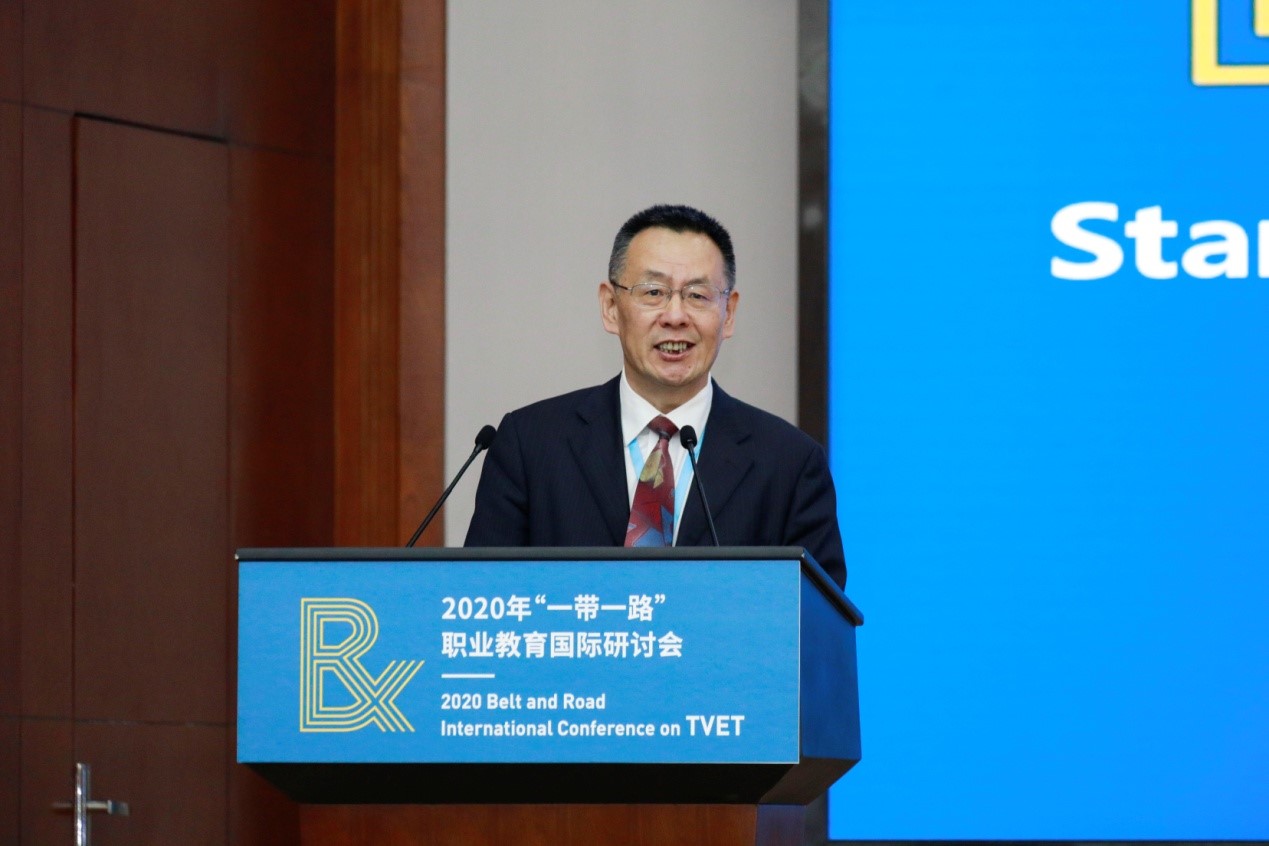
Liu Jiantong gave a systematic talk on the reform and innovation of the new development of vocational education in the post-epidemic era, saying that vocational education undertakes the important task of supplying high-quality personnel in the digital economy era. At the same time, he put forward two suggestions for deepening cooperation and promoting the high-quality development of vocational education under the Belt and Road Initiative. First, countries and regions in the “Belt and Road” region need to step up the cooperation in the field of vocational education. Upholding the concept of a community of shared future for mankind, we need to further promote vocational education to better connect, adapt, support, and serve the development of the economy and the society and to play a better role in employment enhancement, so that the people will have a sense of fulfillment, happiness and security; Second, more efforts are needed to have in-depth discussions about further integrating a new generation of information technology with teachers, teaching methods, and teaching materials, and jointly design educational objectives of personnel who will take digital positions, educational models of personnel who are required to have digital capabilities, and training standards of personnel who can satisfy future business needs, so as to develop more future-oriented highly-competent technical and skilled personnel and high-quality workers.
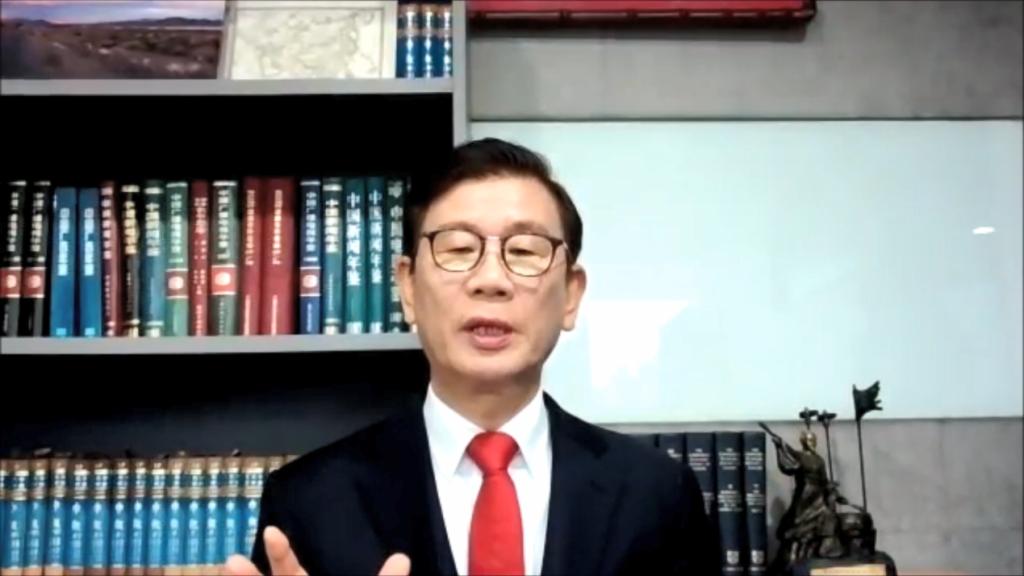
YANG Phil Seung said that the Belt and Road Initiative will further accelerate international cooperation in vocational education. With the help of artificial intelligence technology, all countries and people can better participate in the diversified development of the world. Under the principle of coordinated development, we need to respect the history and traditions of various countries when strengthening scientific and technical cooperation, especially the application of artificial intelligence technology in the training of technical and skilled personnel. Only in this way can we truly achieve interconnection and mutual-sharing, thus truly realizing the goal of building a community of shared future for the mankind.
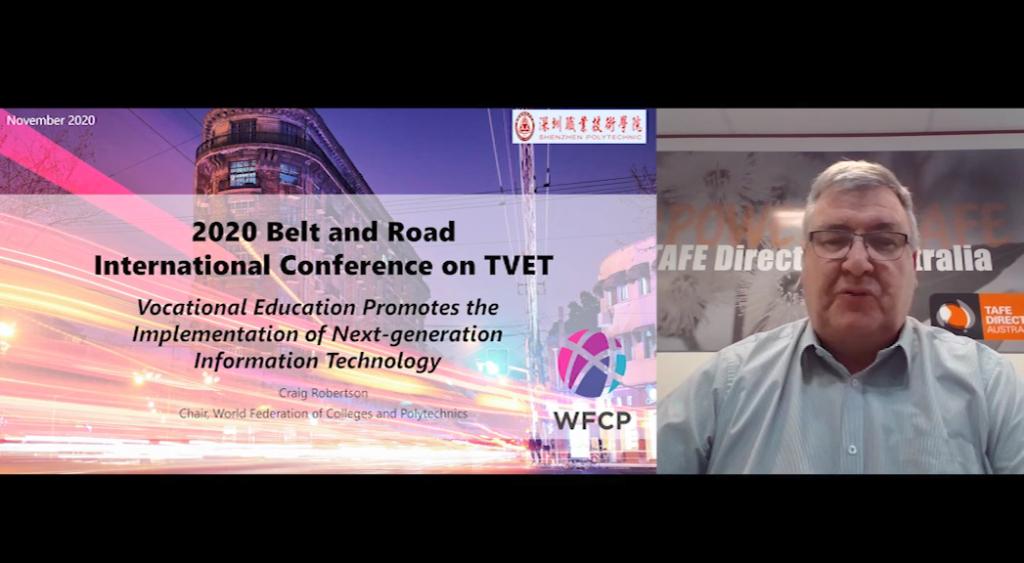
Craig Robertson discussed the dividends brought by vocational education. After completing vocational education, people will be certified for vocational qualifications, and they can go directly to work. They can start from one field and continue to improve, and then enter other fields, and continue to obtain new resources, new skills and new abilities. In the future, technology will completely change all aspects of life and work, and vocational education will play a critical role in helping people acquire new skills and create more jobs in the digital age.
Digital Empowerment Helps Vocational Education and Teaching Innovation in the Whole Scene
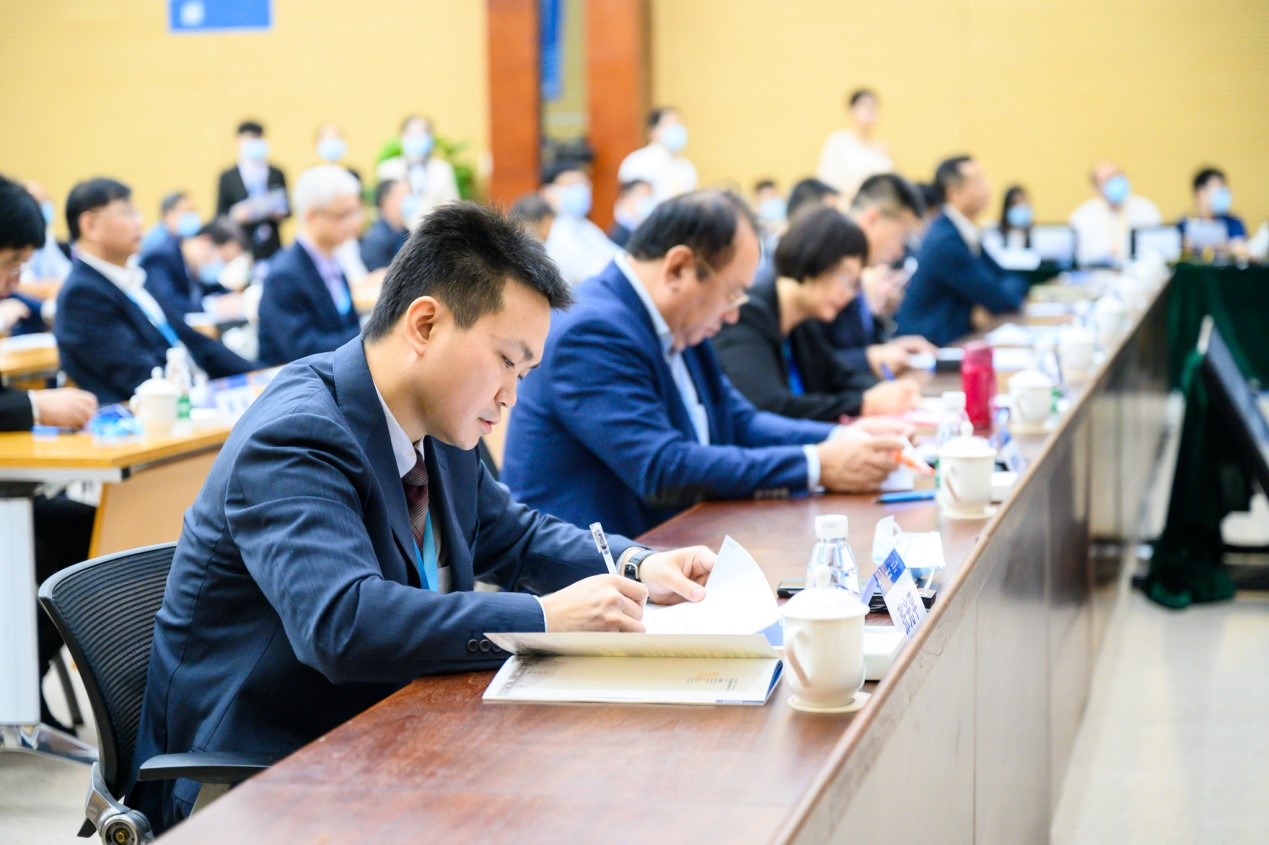
In the panel discussion of “front dialogue”, the host Yang Xinbin, Chairman of Board and President of Shenzhen Polytechnic invited seven guests, namely Carrie Yau, Executive Director of Vocational Training Council, Hong Kong, Larry Rosia, President and CEO of the Saskatchewan Polytechnic (Canada), Gulnar Shaimergenova, Director of China Studies Center (Kazakhstan), Li Dingxin, Head of Research Department of China Center for Contemporary World Studies, International Department of the Central Government, Du Kewei, Director-General of China Center for International People-to-People Exchange, Ministry of Education, Lu Shouji, Secretary-general of Silk-Road Industry and Finance International Alliance, and Hu Jiangyuan, Deputy General Manager of Higher Education Unit of iFLYTEK gave their unique insights from the perspectives of the technology frontier, industry frontier, and education frontier focusing on how vocational education promotes the application of a new generation of information technology, what digitalization brings to students and how digital technology benefits and reaches more people, and on how vocational education should directly serve the promotion of high-quality, co-construction of the "Belt and Road" technology + humanistic training model, artificial intelligence to help the innovation of education and teaching in the whole scene.
Model Exploration, University-enterprise Dialogue Promotes Vocational Education
Digital Transformation
University-enterprise cooperation and the integration of production and education are the keys to promote the high-quality development of vocational education, and are also an important guarantee for improving the quality of vocational education talent training. In the panel discussion of “university-enterprise dialogue”, the host Du Benwei, Supervisor of the Chinese Society for Technical and Vocational Education and Chairman of Board of Neusoft Institute Guangdong invited seven guests, namely Dr. Koon-shum CHOI, Deputy Director of the committee for Education, Science, Culture, Health and Sports, CPPCC, PRC, Chairman of the Chinese General Chamber of Commerce, Hong Kong and Chairman of Sunwah Group, Morten Emborg, CEO and President of Technical Education Copenhagen (Denmark), Koh King Kee, Dean of ASEAN Branch of the National Academy of Belt and Road Green Development at China International Culture Exchange Center, Yang Xinbin, Chairman of Board and President of Shenzhen Polytechnic, He Xingyue, President of Zhejiang Institute of Mechanical Electrical Engineering, Zhang Hui, Senior Vice General Manager of Sany Heavy Industry Co., Ltd. And President of Sany University and Hunan Sany Polytechnic College, and Zhu Linrui,Director of Unmanned Aerial Systems Training Center of DJI shared their own successful experience and discussed vocational education in the subdivision of 5G application as well as the exploration and practice in the digital transformation of vocational education.
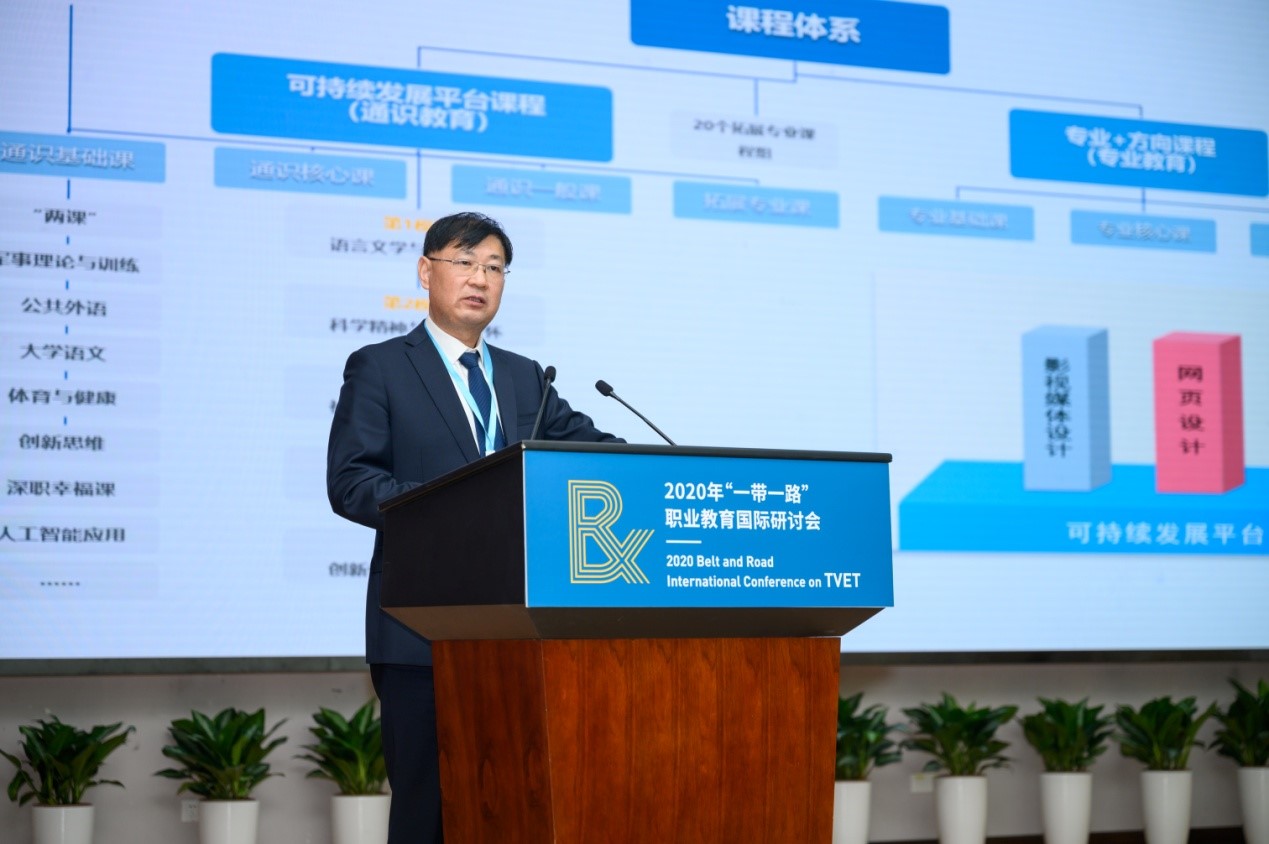
The reportOn Exploration and Practice of Major Transformation in the Context of Digital Economy: Taking Shenzhen Polytechnic as an Examplemade by Yang Xinbin, shares the ideas and measures adopted by Shenzhen Polytechnic in three aspects of background and reason, method and effect, as well as experience and understanding. The main way of thinking in the article is to facilitate new technologies and related knowledge represented by AI, big data and block chain to penetrate into majors, courses, textbooks and classrooms by focusing on major groups and emphasizing on digital transformation, as well as to establish a docking dialogue mechanism for vocational education and digital economy. In line with the ten major transformation measures, we will build a number of international and domestic leading majors, cultivate a number of professional leaders and leaders with international influence, cultivate a number of professional construction achievements with international influence, and form a set of international leading vocational education mode with Chinese characteristics. Through the comprehensive transformation of the professional education ecology, a new talent training system under the background of the digital economy will be created.
Make Clear Orientation, Amplify Effects, Push forward High-quality Vocational Education in the Context of "Belt and Road Initiative"
In the closing ceremony, Liu Jiantong read the consensus through representatives' in-depth communication and discussion -Shenzhen Initiative: Promoting Digital Vocational Education for Shared Benefits by Consultation and Cooperation.
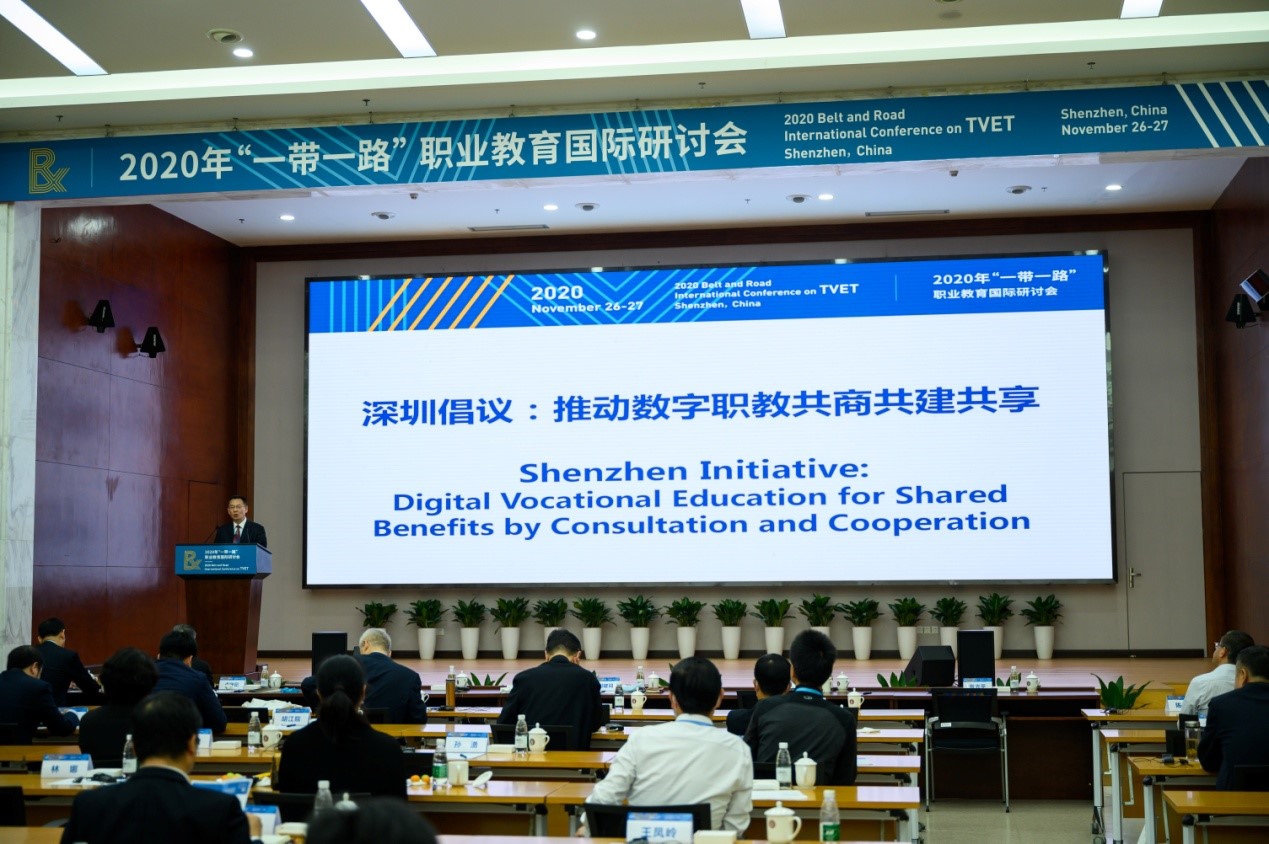
The initiative poses that the international situation has undergone profound change during the century-old change interwoven with the centennial pandemic. The new-generation IT technologies represented by big data, industrial Internet, AI, cloud-computing, block chain and others have changed human lifestyle and our way of production. Meanwhile, these technologies put forward stricter requirements for skill-based talents' training, so the digital transformation of vocational education is necessary. It is the common vision about developing vocational education for countries and regions included in Belt and Road Initiative to implement the ideas of digital vocational education, boosting reform innovation of vocational education and improve the ability in adaption to economic and social development in every respect.
The main contents of the initiative include cooperation in research on the related theory on digital transformation of vocational education to underlie the theory on digital vocational education; cooperation in formulating digital construction standard of vocational education, developing the coursed of digital vocational education and sharing vocational educational resources; cooperation in implementation and wide spreading of digital technologies in countries and regions included in Belt and Road Initiative; cooperation in explore a new land for prosperous development of vocational education through extensive consultation, joint contribution and shared benefits.

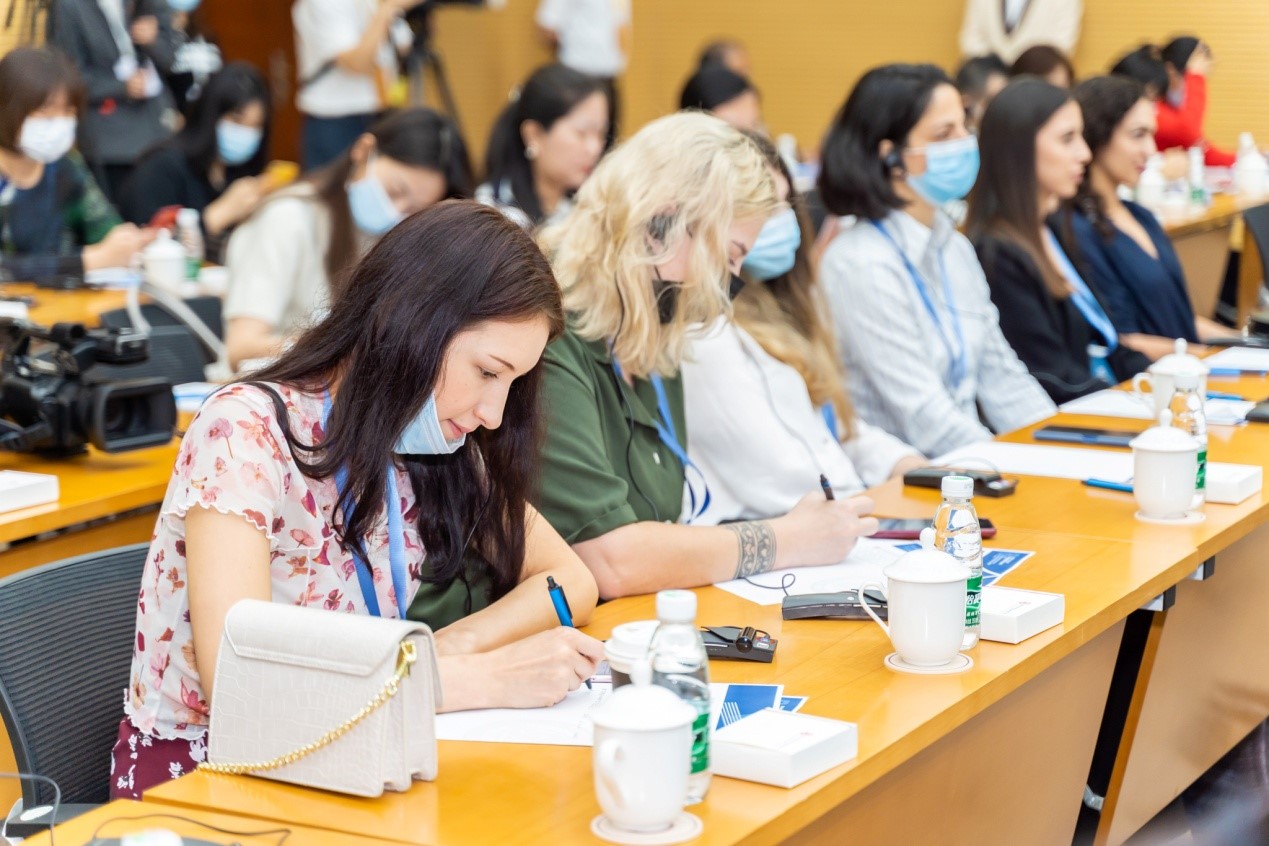
Domestic and foreign leaders and guests gave positive evaluation to the rich achievements in 2020 Vocation Education International Symposium for the Belt and Road Initiative and crucial contributions to the development international vocational education, and highly praised the organizer's effort in holding the Symposium. The Symposium served as an important platform for domestic and foreign governments, industries, enterprises, international organizations and vocational institutes to learn from each other and share the resources, which is of great significance to strengthen digital transformation of vocational education, forge a cooperative mechanism for long-term, stable and sustainable development, facilitate the cooperation and common action in vocational education in countries included in Belt and Road Initiative, and build a community with a share future for vocational education in Belt and Road Initiative. The Symposium aims to further build our consensus, make clear our orientation and amplify our achievements so as to promote vocational education with higher quality and standard to a higher level in the context of Belt and Road Initiative.
